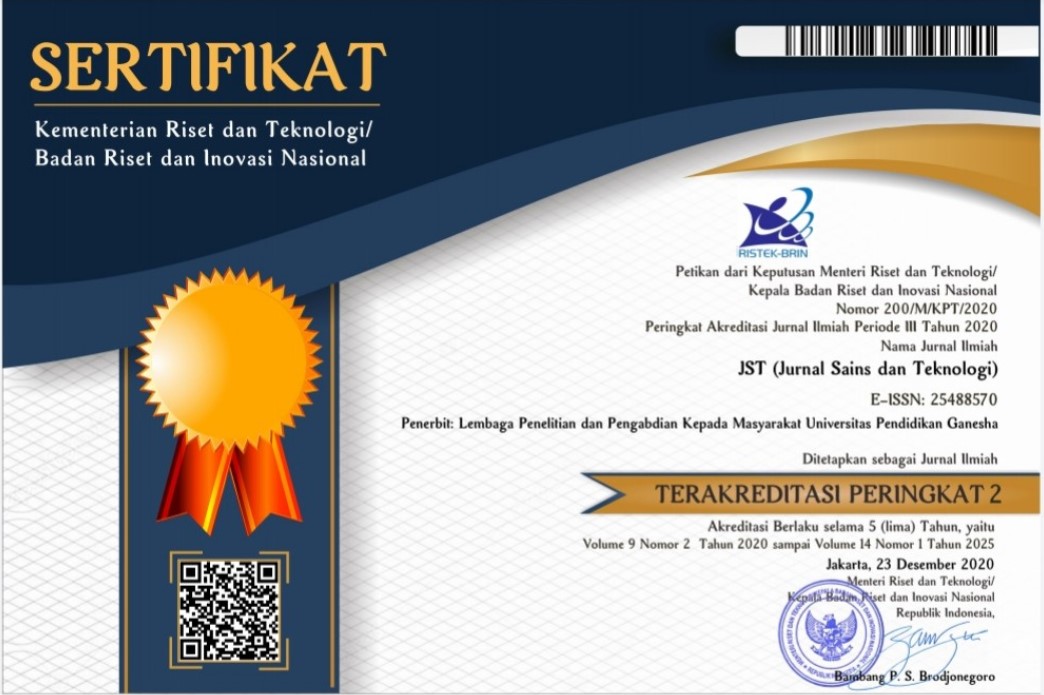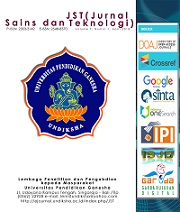PENGEMBANGAN BRIKET JERAMI PADI (ORYZA SATIVA) YANG MENGANDUNG ISOLAT BAKTERI PENDEGRADASI MINYAK BUMI SEBAGAI UPAYA MENGATASI PENCEMARAN DI PERAIRAN LAUT
DOI:
https://doi.org/10.23887/jstundiksha.v3i1.2910Abstract
Penelitian ini bertujuan untuk mengetahui: (1) komposisi briket jerami yang paling baik untuk pertumbuhan isolat bakteri pendegradasi solar, (2) karakteristik isolat bakteri dari ke lima genus bakteri pendegradasi solar yang paling baik tumbuh dalam briket jerami, (3) isolat bakteri pendegradasi minyak solar mampu mendegradasi secara soliter atau dalam bentuk konsorsium. Penelitian ini tergolong penelitian eksperimental. Pengumpulan data dalam penelitian ini dilakukan dengan dua cara (1) pengambilan data di lapangan, (2) analisis sampel di laboratorium. Hasil penelitian menunjukkan bahwa (1) komposisi 4% merupakan komposisi yang optimum untuk pertumbuhan bakteri pendegradasi solar,(2) didapatkan 4 genus bakteri yang mampu tumbuh pada media yang telah diberikan jerami padi. Genus tersebut antara lain Pseudomonas, Acetobacter, Neisseria , dan Halomonas. Jumlah total koloni paling rendah terdapat pada genus Halomonas, kemudian semakin bertambah pada genus Acetobacter, Neisseria, dan jumlah total koloni paling tinggi ada pada Pseudomonas, (3) Isolat bakteri pendegradasi minyak solar mampu mendegradasi secara soliter atau dalam bentuk konsorsium tetapi dalam bentuk konsorsium pertumbuhan lebih optimum.
Downloads
How to Cite
Issue
Section
License
Authors who publish with the Jurnal Sains dan Teknologi (JST) agree to the following terms:
- Authors retain copyright and grant the journal the right of first publication with the work simultaneously licensed under a Creative Commons Attribution License (CC BY-SA 4.0) that allows others to share the work with an acknowledgment of the work's authorship and initial publication in this journal.
- Authors are able to enter into separate, additional contractual arrangements for the non-exclusive distribution of the journal's published version of the work (e.g., post it to an institutional repository or publish it in a book), with an acknowledgment of its initial publication in this journal.
- Authors are permitted and encouraged to post their work online (e.g., in institutional repositories or on their website) prior to and during the submission process, as it can lead to productive exchanges, as well as earlier and greater citation of published work. (See The Effect of Open Access)
















